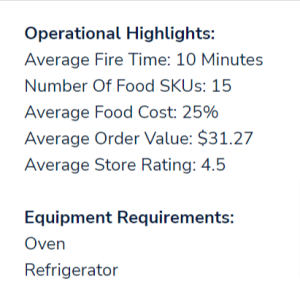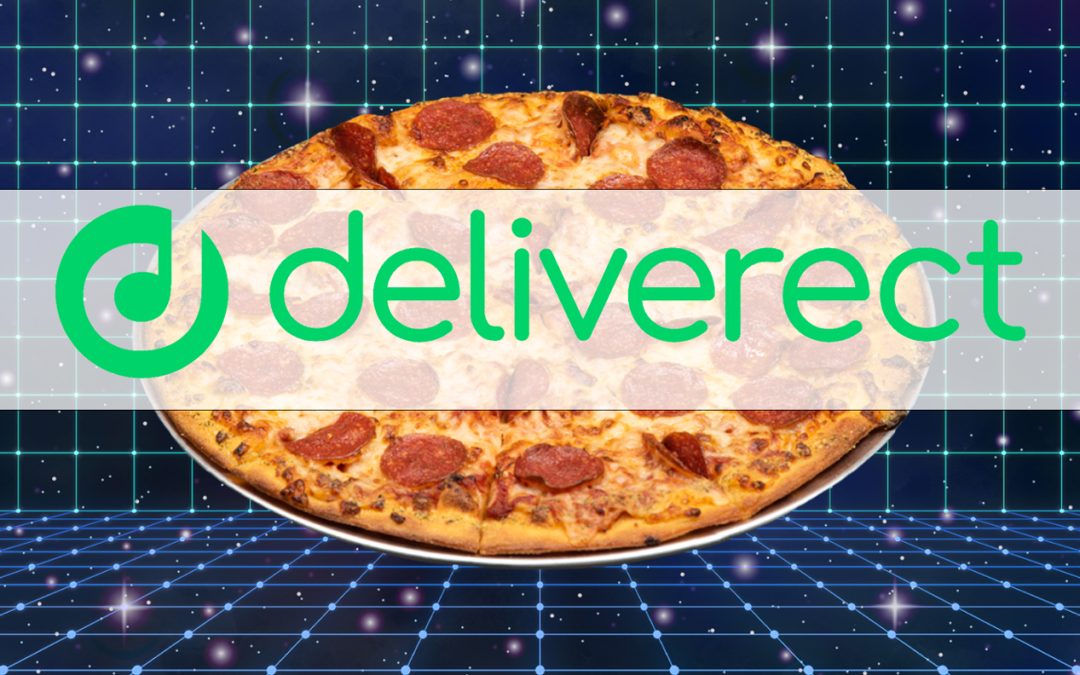A new marketplace of virtual brands from Deliverect aims to make finding the ideal virtual concept as easy for operators as finding the right lightbulb at Home Depot.
Virtual brands are one of the few megatrends in the restaurant space right now. The ideal setup is incremental revenue that takes advantage of fixed costs like rent, labor and possible synergies when it comes to ingredients. The reality, however, doesn’t always match the potential.
An operator might get their nephew to make a logo, buy a bunch of frozen chicken tenders and launch a delivery-only brand with little or no response. Or they might sign on with one of the ever-growing numbers of virtual brand creators but then need to sift through available brands to find the right fit.
Deliverect co-founder and CEO Zhong Xu said his new virtual marketplace is playing matchmaker between great operators and virtual brand creators.
“That is why we launched our virtual brands marketplace to connect that fragmented world. If you’re good at operations, you may not be the person making the best brands, it’s a different creative set,” said Xu. “People who have great brands might not be operationally solid.”
Essentially, the marketplace looks like an app store of virtual brands, and it’s built into the broader tool ecosystem inside Deliverect, which connects food delivery platforms with restaurant point-of-sale systems. Operators on the platform can scroll through brands from brand developers like Popchew, the creator of Bitcoin Pizza, and find key details about operating the virtual brand.

Some tidbits about Bitcoin Pizza in the marketplace.
“What you see there is the name, the description, but more importantly what are the operational highlights, the cooking times, the SKUs you need, the order value. Some restaurants would say, ‘I don’t want to cook anything longer than 15 minutes,’ so they can pick from those brands,” said Xu. “For Bitcoin Pizza, you need a pizza oven and a refrigerator.”
If the brand matches the operator’s key factors, they can reach out and get approved. Xu said it can take as little as a week to go from approval to selling food under the virtual brand.
You can take a look at the current marketplace of virtual brands now, but Xu said there will be more brands coming soon. Right now, he said he wanted to focus on brands that were simple to execute and cost-effective for the 26,000 operators using Deliverect. There are currently 18 brands in the marketplace, and Xu said Unilever would be adding brands like Ben & Jerry’s to the system in a matter of weeks. The common thread: they’re all profitable.
“The brands we have on our marketplace, we’ve thought through the costing of it. Once you take it on, your food costs are under 30 percent,” said Xu. “It’s not a Michelin Star restaurant with 85 steps in the recipe, but it’s featuring these easy-to-make brands and have a good profit margin. That takes some engineering, that’s harder for small business restaurants. I have a dark kitchen; I know how painful it is. It’s a low-margin business. If you make a mistake in food cost it eats away all the margin.”
Since launching, Xu said his inbox has been “insane.” He’s excited to bring more brands online and help brands find new markets. Bringing great operators and great brands together, is “where the magic happens,” said Xu. “You can bring these brands to underserved markets around the world. That’s really a game-changing model. It’s like franchising but digital.”
As for costs, it depends on the brand, but it averages around 5 percent of sales. Some brands also require specific SKUs.


